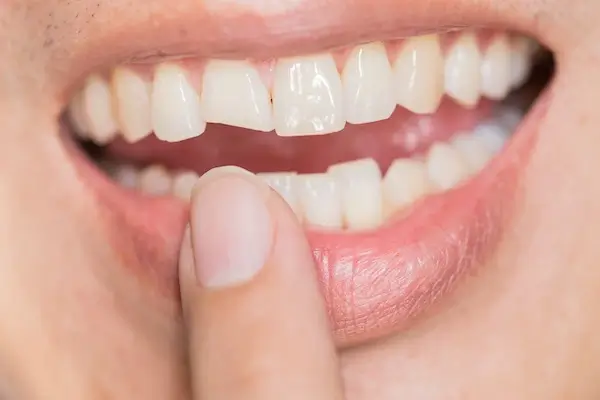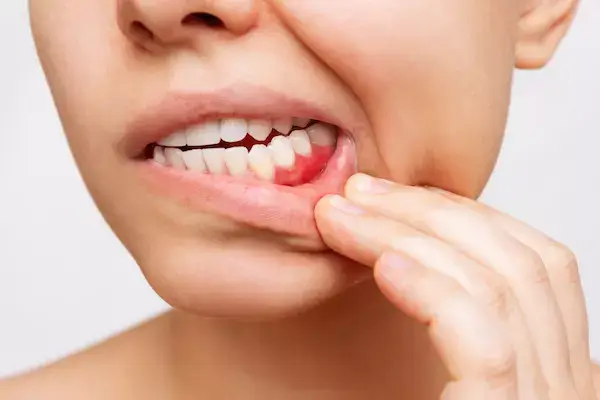My Dental Crown Fell Out
My Dental Crown Fell Out… What To Do If You Lost A Dental Crown
Dental crowns fall out for various reasons. Biting down on something hard or chewy or a sharp blow to the jaw could knock a crown loose. The gradual loosening of dental crowns can also happen if a crown gets chipped but does not fall out at that time. Even the most minor chip can lead to loss of crown integrity as the chip enlarges and weakens the adherence of the crown to the tooth.
Save Your Dental Crown and Call Eric Spellman, DMD
When possible, try to retrieve your lost dental crown and save it. Rinse it carefully, if you can, with mild soap and water and store it in a safe, clean place. Call our experienced cosmetic dentist in Larchmont, Eric Spellman, DMD, to determine if you can save your crown or need a same-day dental crown replacement.
Bring your dental crown with you when you go to your appointment. Your experienced Larchmont dentist, Eric Spellman, DMD, may be able to reattach it, saving you time and money. Sometimes, you may accidentally swallow your crown. Don’t worry, it will not hurt you. If you ate or lost your crown, Dr. Eric Spellman can replace it with a new same-day dental crown.
What If I Can Not Get An Appointment The Same Day?
Watch What You Eat
Teeth with crowns tend to be more vulnerable and sensitive than other teeth. Therefore, you should be cautious about how and what you eat while your dental crown is out of commission. It is best to avoid extremely hot or cold foods and crunchy foods that might irritate the exposed tooth. Remember to chew food on the opposite side of your mouth as the lost crown when you chew.
Monitor Your Missing Tooth
If you do not visit your dentist within a day or so after the crown falls off, it is essential that you keep a close watch on your tooth. Call your dentist immediately if you experience significant pain or notice that the tooth or tissue around it is suffering further damage.
Keep Up with Oral Hygiene
Careful oral hygiene can prevent harmful bacteria and food particles from causing further damage to the exposed tooth. Gently brush your teeth twice daily, flossing regularly. Rinsing with an antiseptic mouthwash for 30 – 60 seconds a few times daily may also be helpful.


 At Eric Spellman, DMD, we have several options to replace a missing tooth. If you have a tooth that has been knocked out in an accident or removed due to tooth decay, call our highly trained cosmetic and restorative dentist, Dr. Eric Spellman, to replace the problem so you can regain the complete functionality and appearance of your smile. If you live in the Larchmont, Scarsdale, and surrounding areas, call our dental team at
At Eric Spellman, DMD, we have several options to replace a missing tooth. If you have a tooth that has been knocked out in an accident or removed due to tooth decay, call our highly trained cosmetic and restorative dentist, Dr. Eric Spellman, to replace the problem so you can regain the complete functionality and appearance of your smile. If you live in the Larchmont, Scarsdale, and surrounding areas, call our dental team at  Accidentally chipping your tooth is an unfortunate situation. Chipping can happen simply by eating normally. The next thing you know, your tooth is chipped. Accidents happen, but who wants to appear less appealing or add another insecurity? Luckily, our Larchmont dentist, Eric Spellman, DMD, offers several treatments to remedy your chipped or broken tooth.
Accidentally chipping your tooth is an unfortunate situation. Chipping can happen simply by eating normally. The next thing you know, your tooth is chipped. Accidents happen, but who wants to appear less appealing or add another insecurity? Luckily, our Larchmont dentist, Eric Spellman, DMD, offers several treatments to remedy your chipped or broken tooth.
 Gum disease, or periodontal disease, is an irritating dental condition that can lead to numerous health problems. Although poor oral hygiene causes most cases of gum disease, other factors can contribute to the development, such as smoking and medical conditions like diabetes.
Gum disease, or periodontal disease, is an irritating dental condition that can lead to numerous health problems. Although poor oral hygiene causes most cases of gum disease, other factors can contribute to the development, such as smoking and medical conditions like diabetes. When your tooth hurts due to an infection, you may wonder if you should get it fixed and save the tooth or replace it with a
When your tooth hurts due to an infection, you may wonder if you should get it fixed and save the tooth or replace it with a